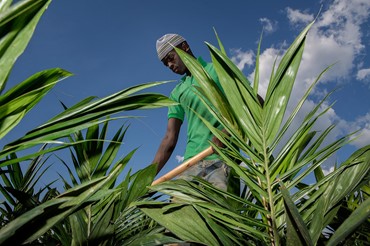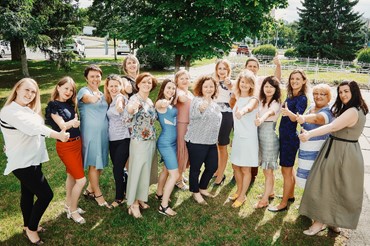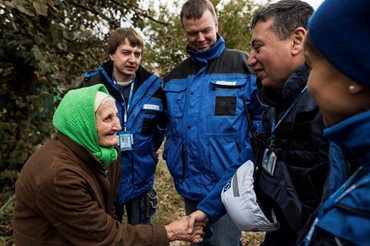Warm welcomes by citizens engaged in making democracy work
With a background in Law and International Human Rights, Poul Svane has been a member of the PSR roster since its launch in 1995. For his first mission, Poul was sent to Rwanda as a human rights observer after the genocide in 1994. Since then, he has participated in several election observation missions, including in Armenia, Kosovo, Moldova, Georgia, North Macedonia, Bosnia, and Uzbekistan. In some cases, he has worked several times in the same country.
“When arriving for long-term missions, my colleagues and I are often met with a celebratory welcome,” Poul says. In Uzbekistan, the celebration took the form of a large local orchestra and a number of dancers in national folk-attire, followed by local traditions, such as sharing of bread. The town’s leaders were present together with national broadcasters and journalists. “The vast majority of the population are very kind to strangers, and I was met with only big smiles and deep gratitude for having come to their country to give the budding democracy a helping hand along the way. Uzbekistan is ethnically diverse, as it is encompasses many minorities and languages,” he adds.
Another observer who has served since 2013 in a number of elections is Susse Bøtfyhr. Her ‘career’ as an international election observer is rooted in her background in international work and residence, further supported by her previous employment in a Danish municipality. “As a long-term observer, you get real insight into a lot of things that are not very pretty - because we as observers have an access to many different people and groups who are mostly very interested in telling their particular version of reality,” says Susse. “If it were not for the expressed interest and enthusiasm of the many ordinary citizens in making democracy succeed, one could easily indulge in deep melancholy as an observer.”








